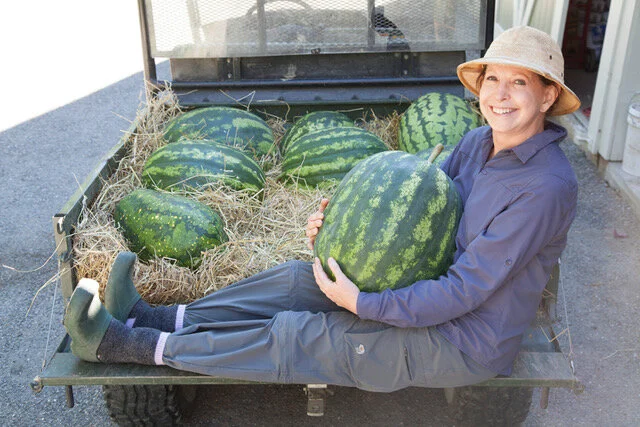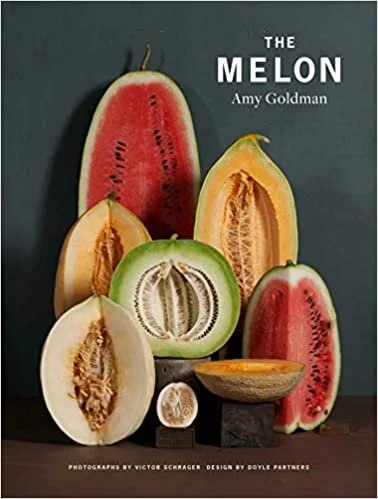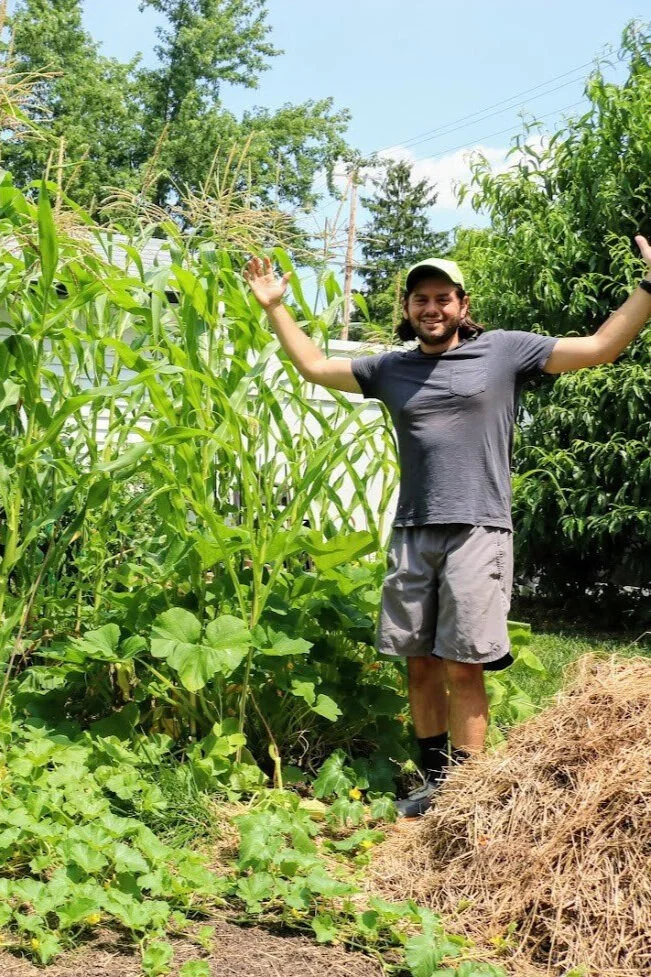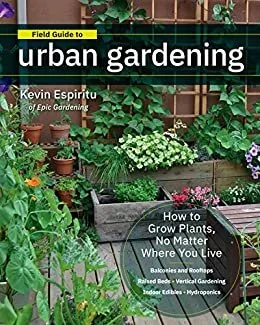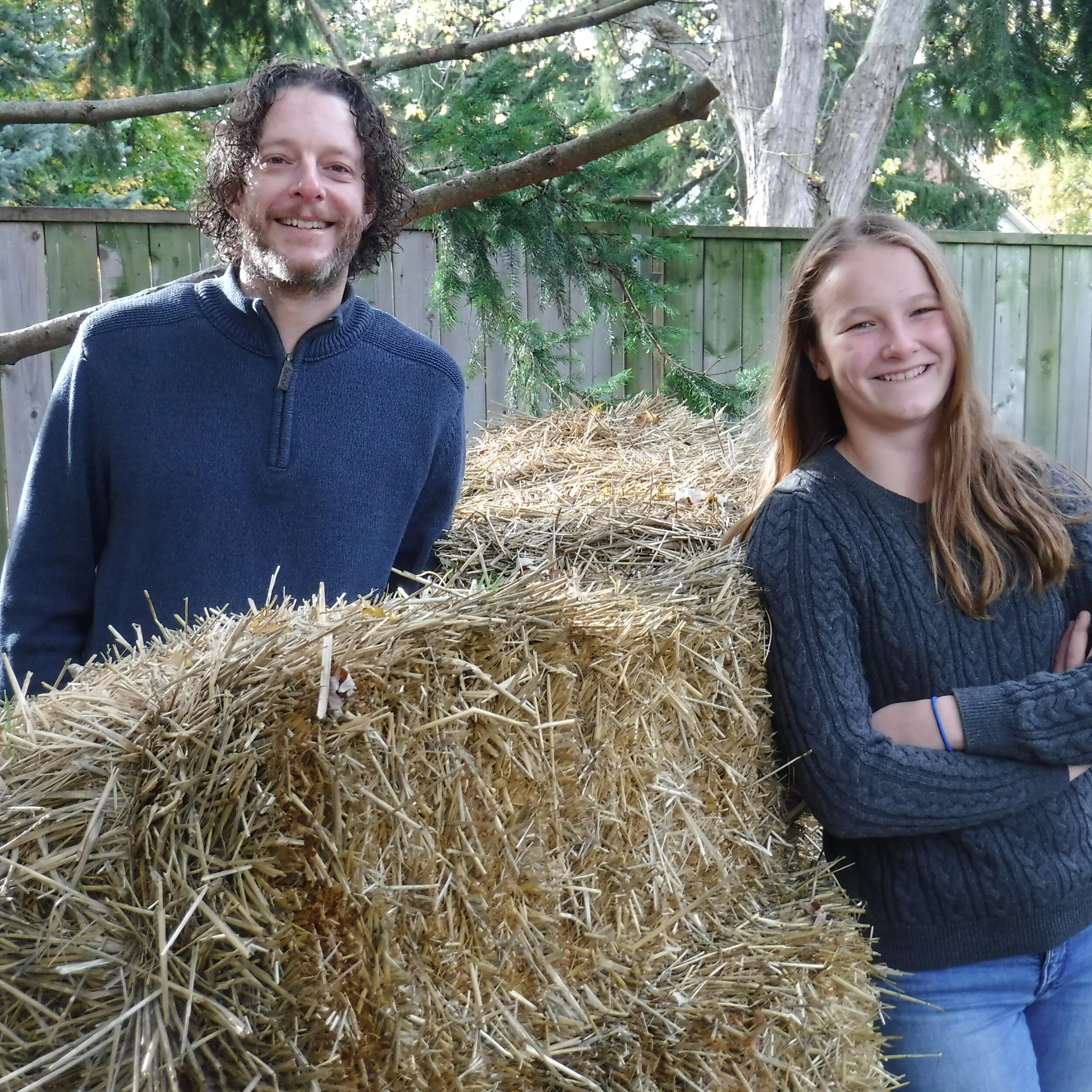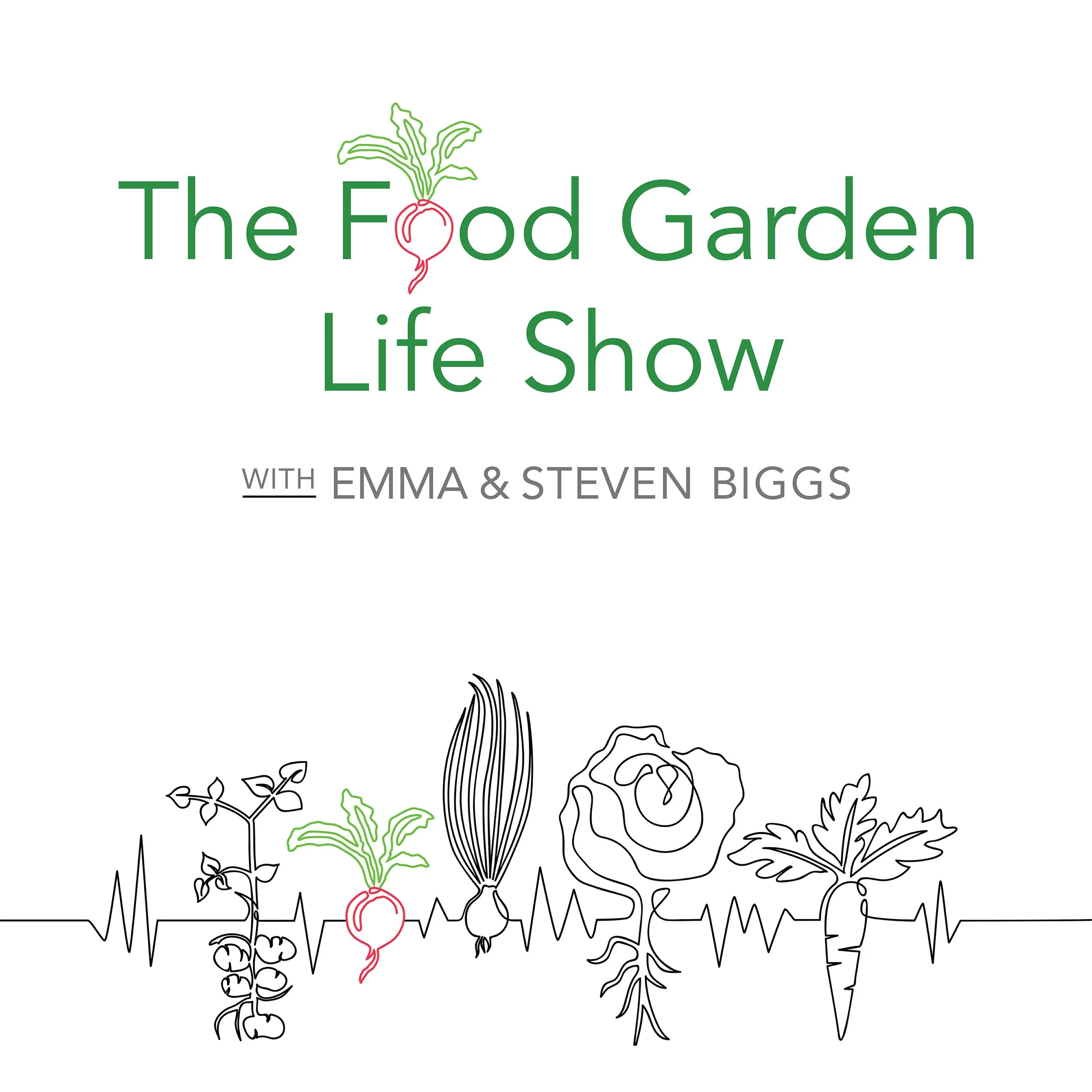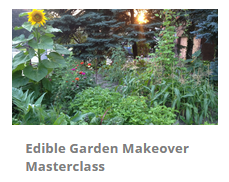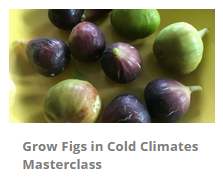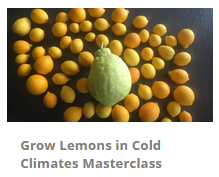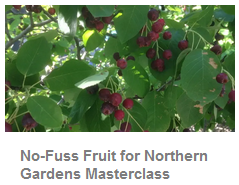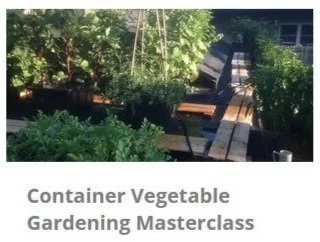Grow Melons, Grow Heirloom Tomatoes: An Interview with Amy Goldman
Amy Goldman, author of The Melon
In a broadcast that originally aired on The Food Garden Life Radio Show, we chat with author Amy Goldman about growing melons, growing tomatoes, her passion for seed-saving, and about her research when writing her books The Melon and The Heirloom Tomato: From Garden to Table. Recipes, portraits, and history of the world's most beautiful fruit.
The Melon
Goldman took nine years to write this tribute to melons that is filled with mouth-watering pictures and information about selecting varieties, growing, seed-saving, and melon recipes.
She explains that when writing the book, she would set aside the best specimens for photographs—and she and photographer Victor Schrager would then enjoy eating them after the photo shoot.
“When we were doing the melon book we would photograph the specimens and then have a feast afterwards.”
Did you know that charentais melons are the true cantaloupes; and that they’re different from the American muskmelons that we mistakenly call cantaloupes?
Goldman says that she babies her melon plants by starting the seedlings indoors, using a black plastic mulch over the soil, covers young melon plants with row covers, and waters judiciously.
Her advice on eating melons? “They’re meant to be shared.”
Images from The Melon
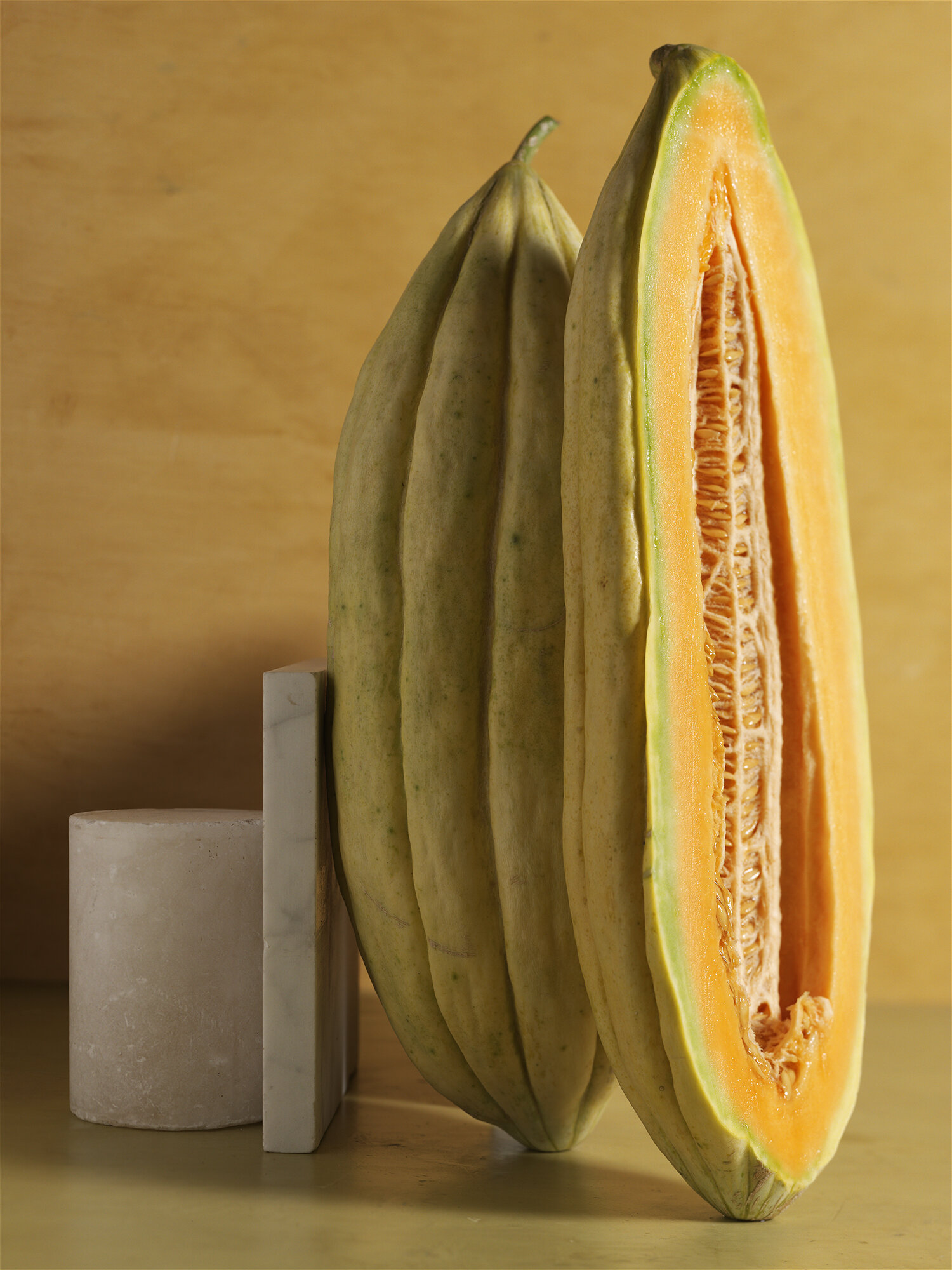
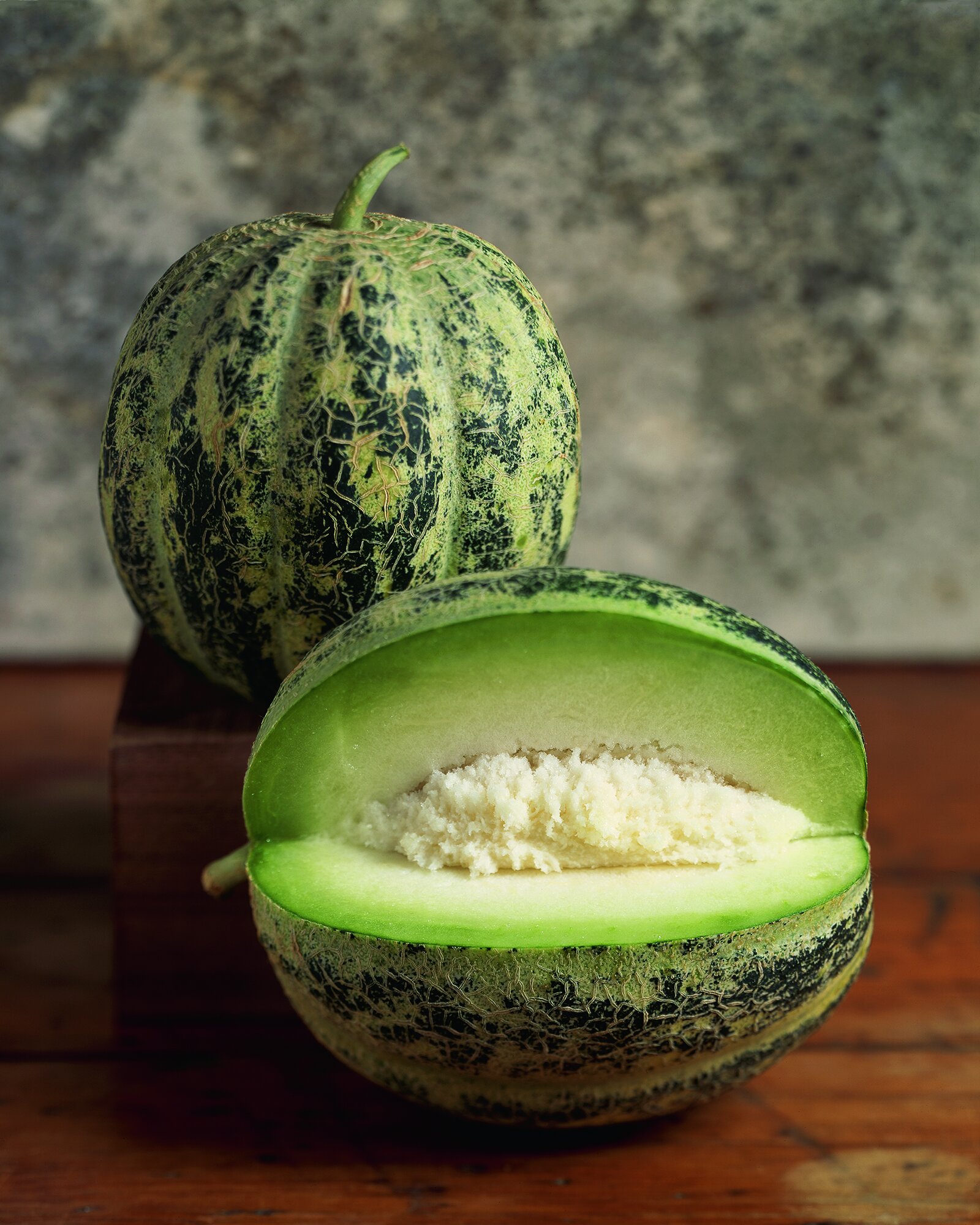
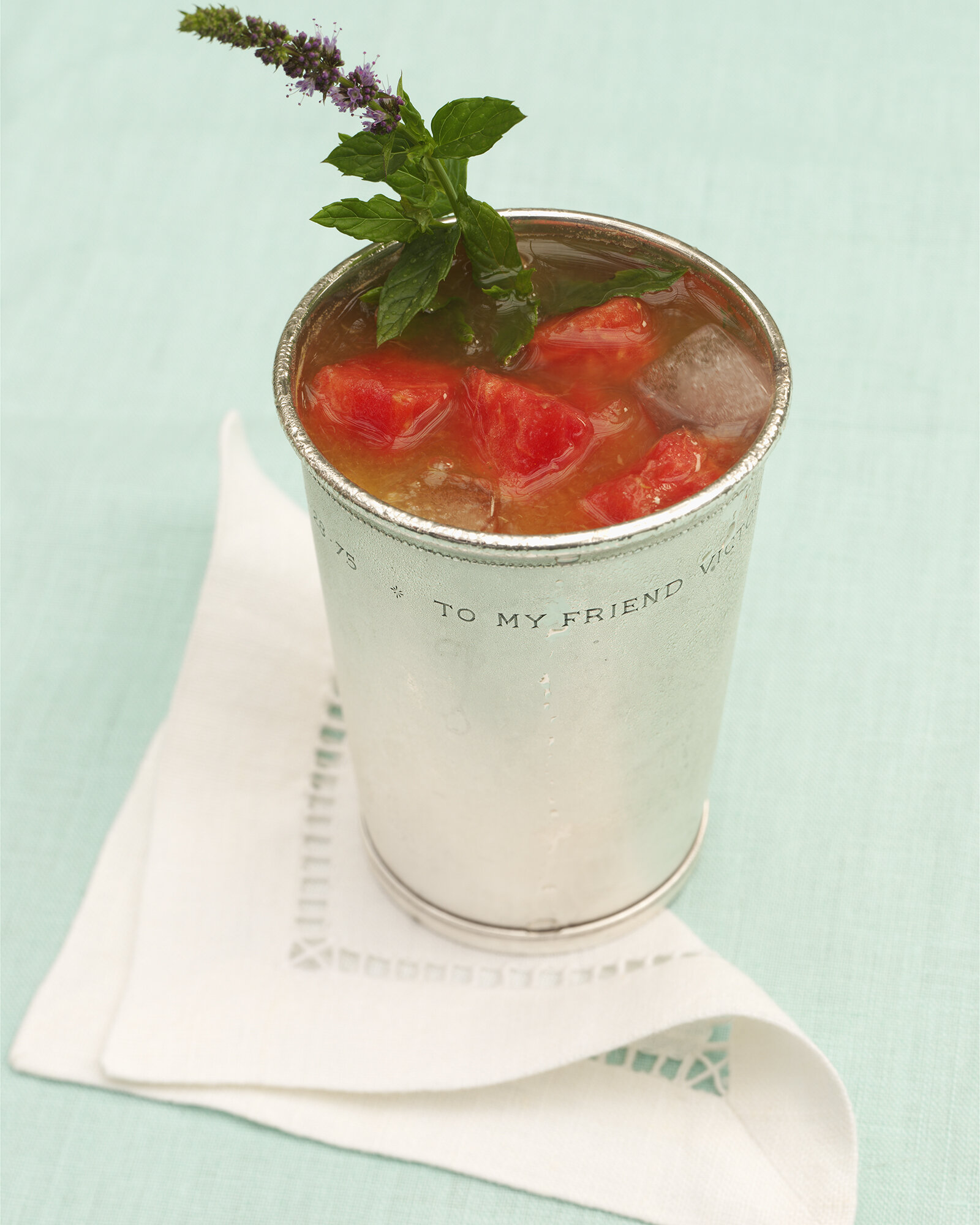
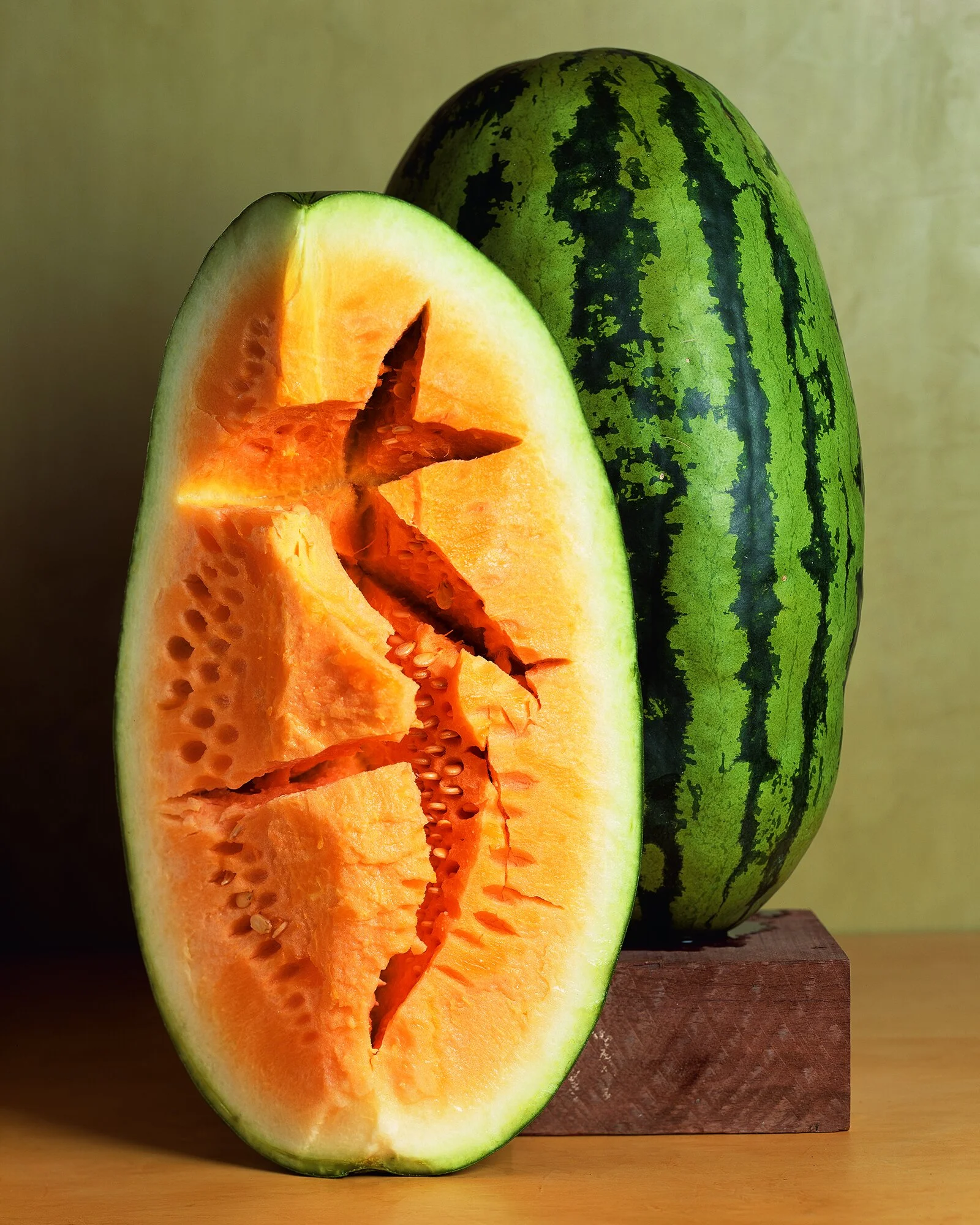
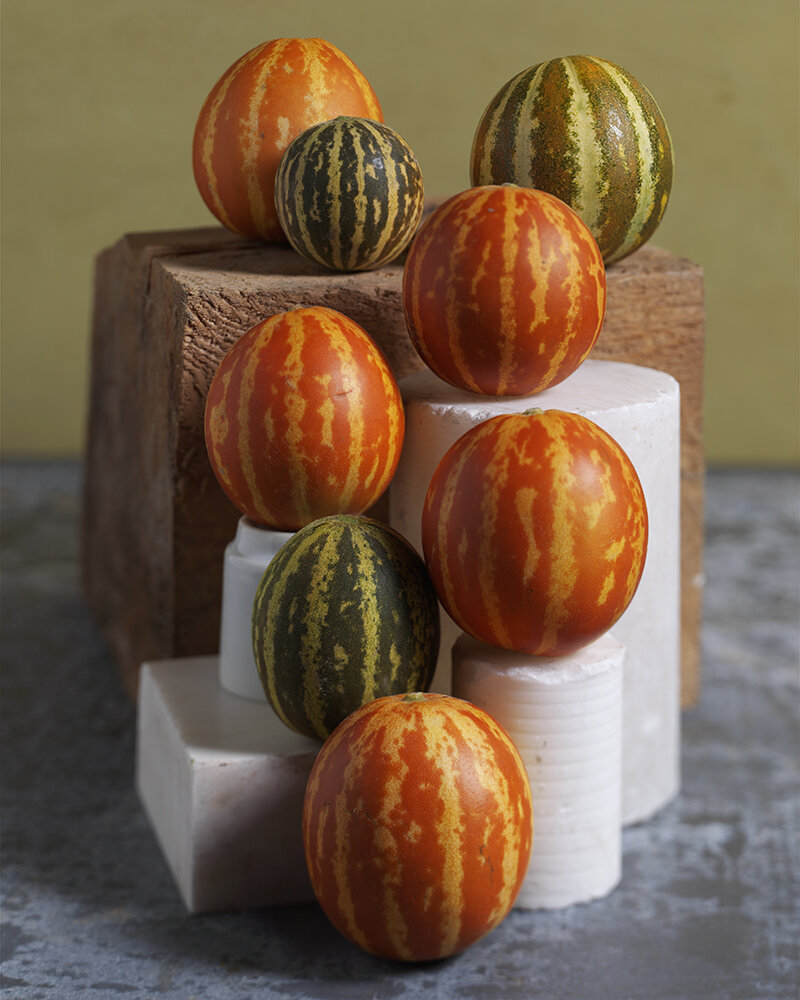
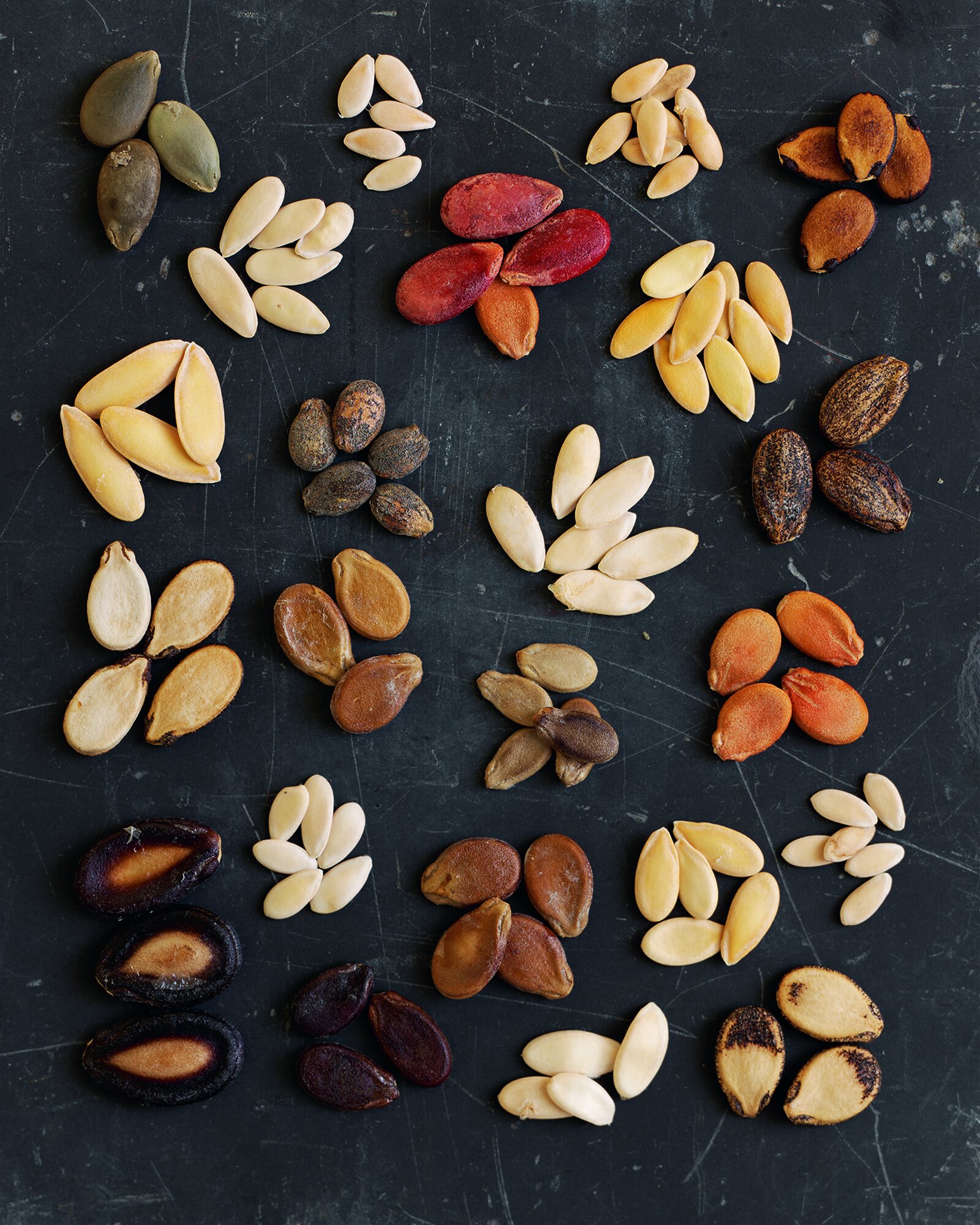
Heirloom Tomatoes
Was the original Brandywine tomato pink-fleshed with a potato-like leaf or red-fleshed with regular leaves? “This is something that only a gardening nerd would care about,” says Goldman. (Incidentally, it’s the latter.)
“Doing the detective work was half the fun of that book!”
“There’s nothing in the world like a homegrown tomato ripened in the full sun. There’s nothing like it,” she says.
Images from The Heirloom Tomato: From Garden to Table
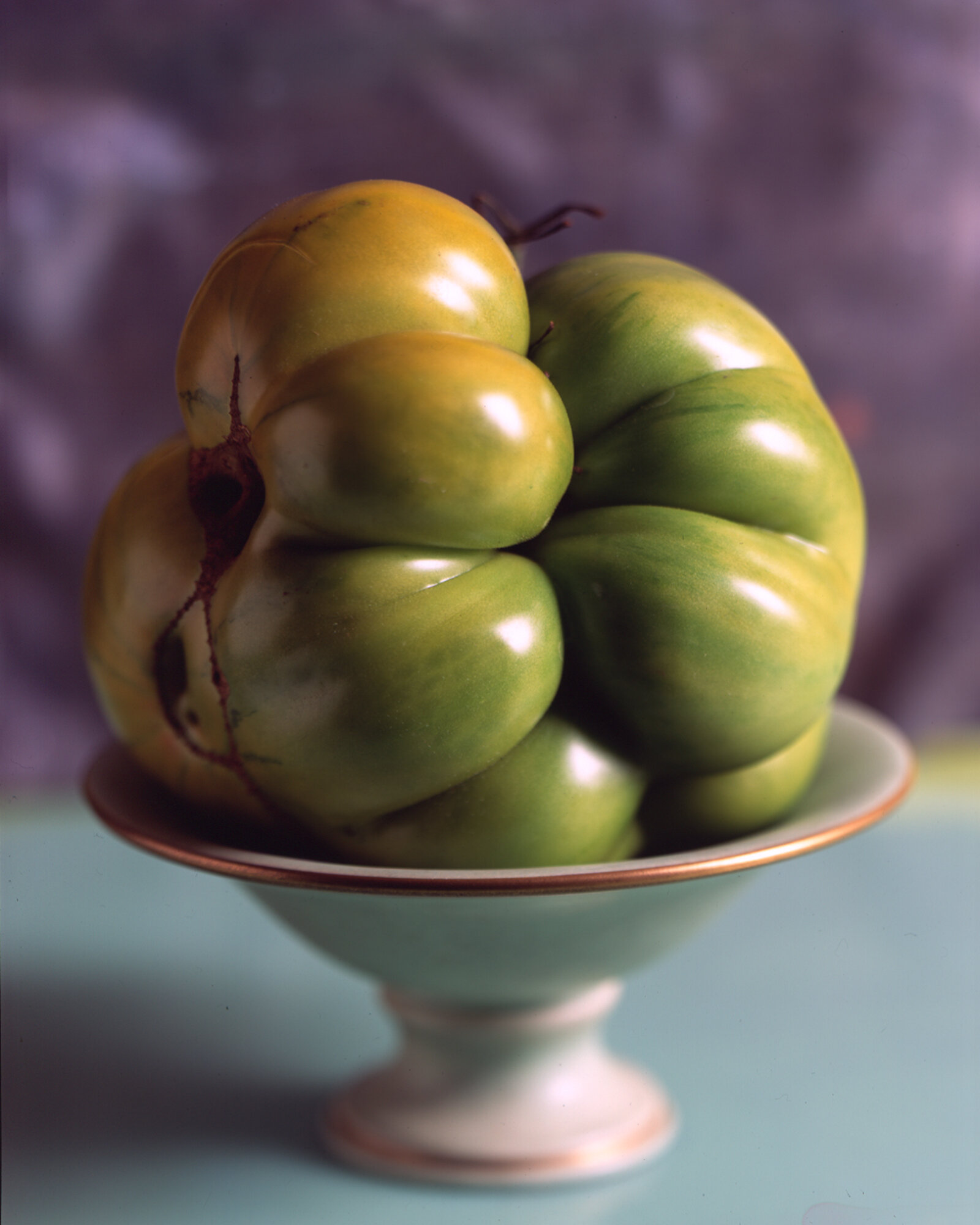
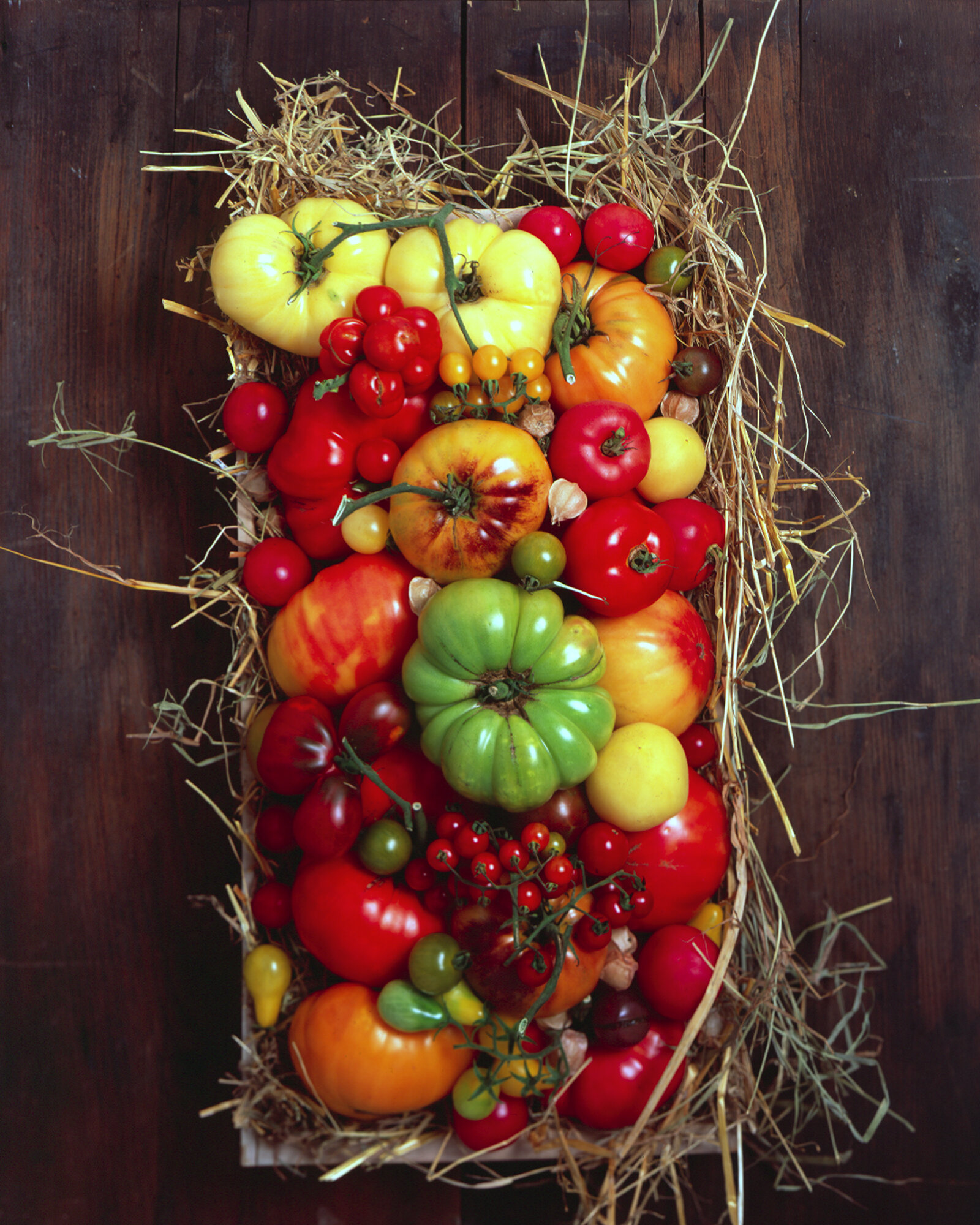
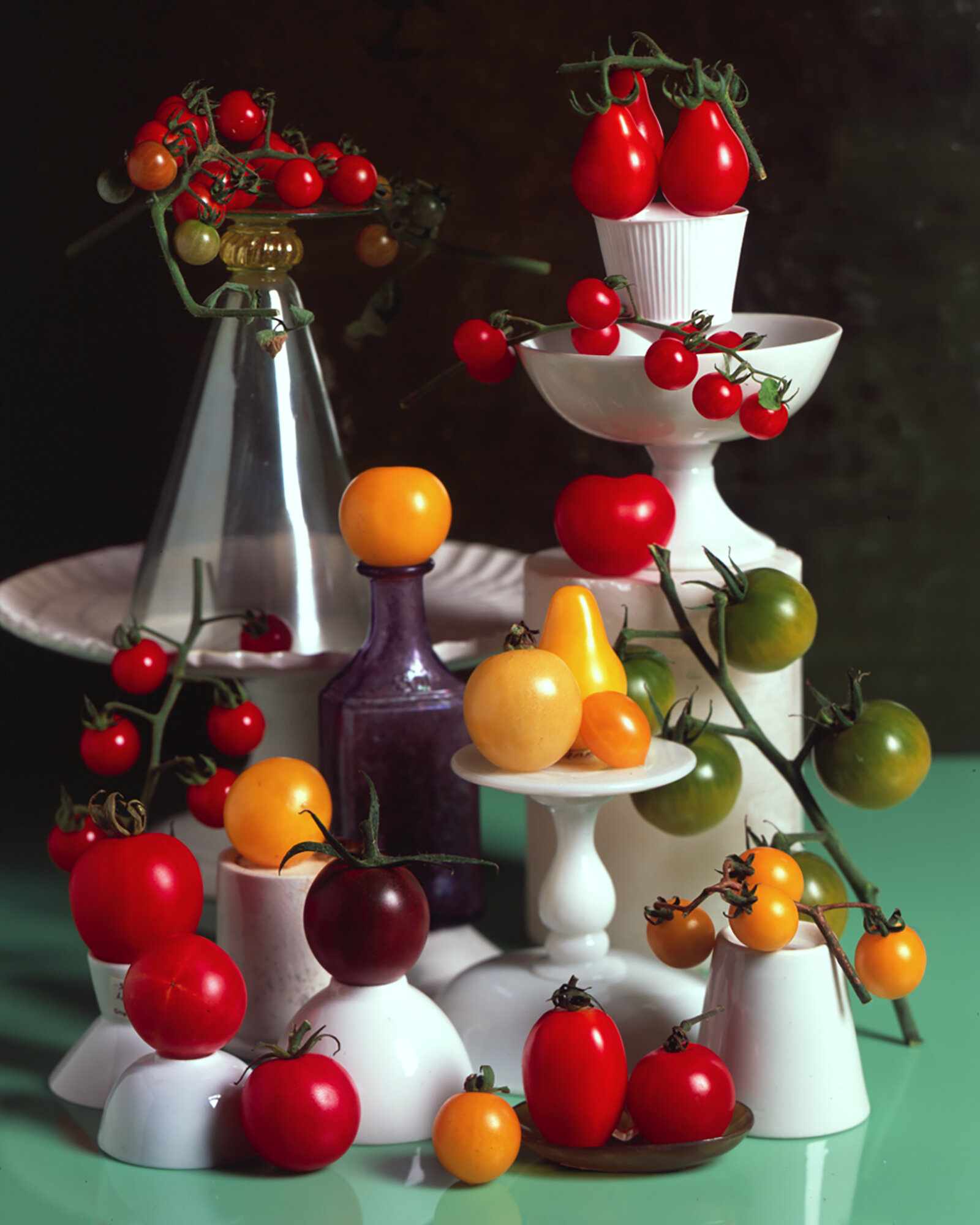
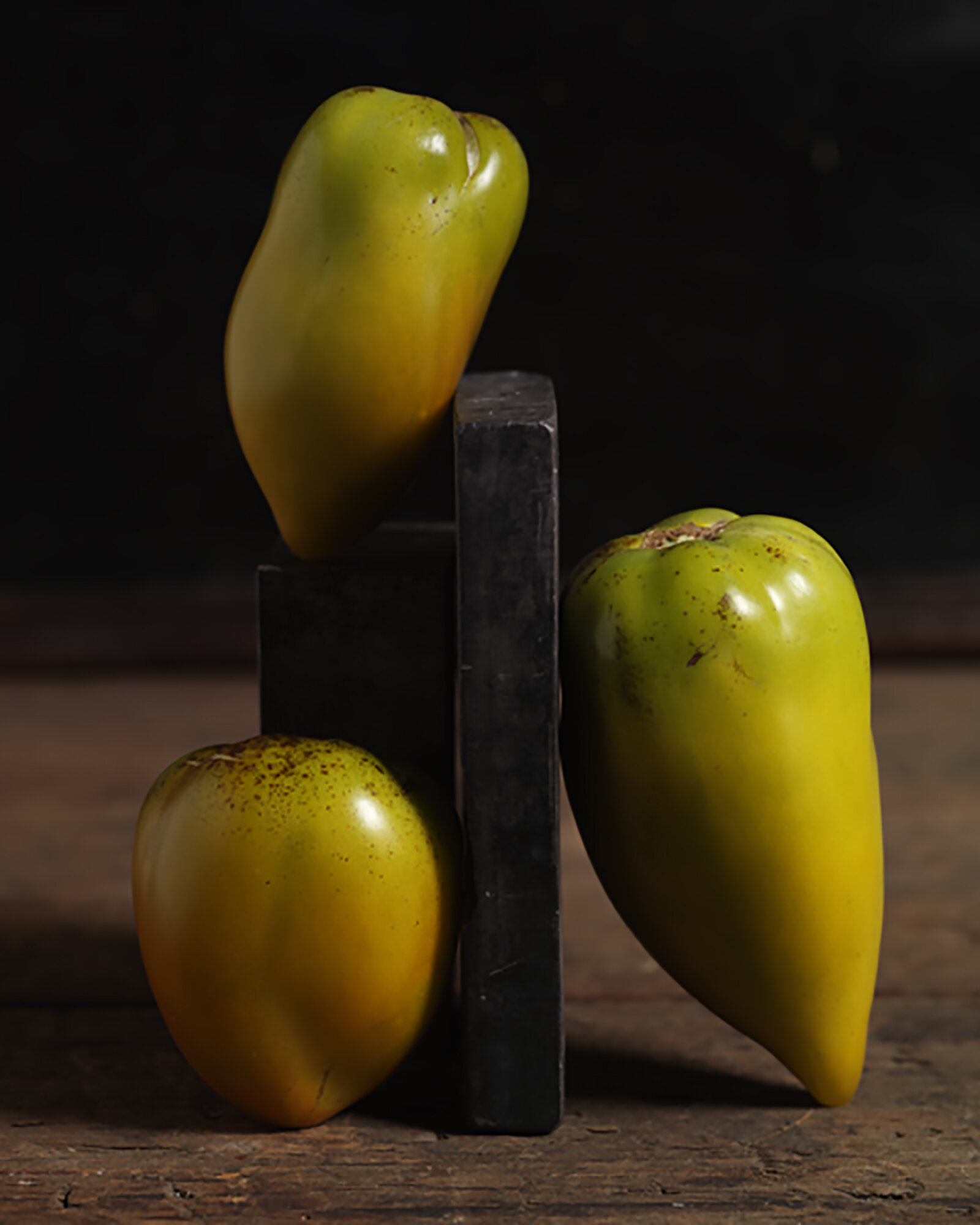
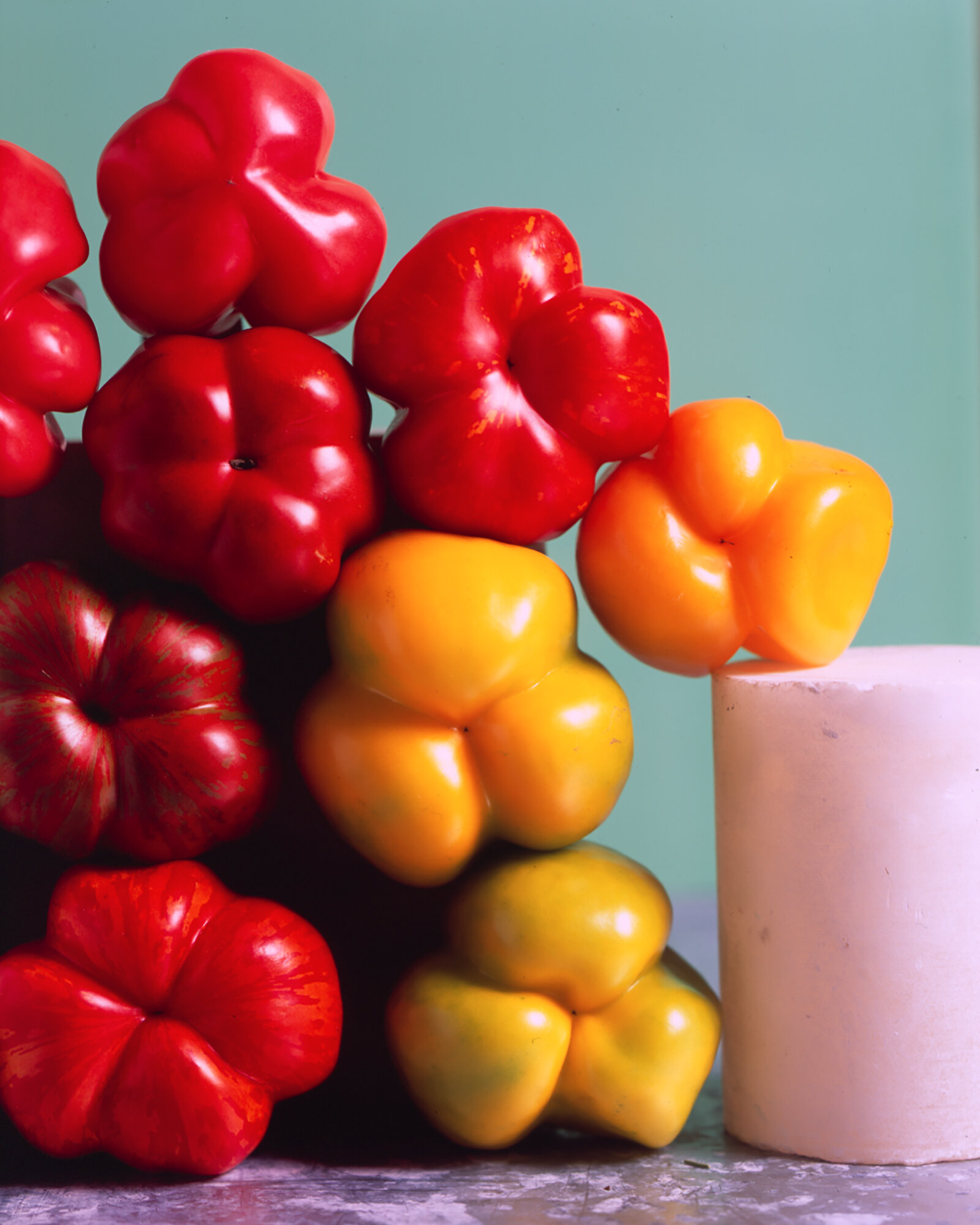
Seed Saving
Goldman is passionate about seed-saving and sharing and perpetuating heirloom varieties. For gardeners new to seed saving, she recommends a book called The Seed Garden, from The Seed Savers Exchange.
“It’s the bible of seed saving.”
Biggs-on Figs Segment
Pennsylvania fig grower Ross Raddi joins us in the Biggs-on-Figs segment to talk about three fig varieties he recommends for gardeners who are growing figs for the first time.
Celeste
Violette de Bordeaux
Hardy Chicago
A Passion for Growing Food in Philadelphia
We chat with Millennial gardener Ross Raddi in Philadelphia. He balances a very intensive approach to food gardening with the need to share the yard with his family—who want grass.
Raddi has previously joined us on the Food Garden Life Show to talk about his passion for growing fruit, and about his passion for growing figs. He goes by the nickname “Fig Boss.”
Intensive Suburban Food Garden
Raddi finds that vertical gardening is an important part of maximizing his use of space. “Grow everything vertically if you can,” he advises new gardeners.
He grows one tomato plant per square foot—and trains them upwards, pinching back to a single main stem.
“I think there’s a big misconception out there that you need a big yard to have a lot of food.”
He believes that a food garden can be attractive too. His favourite ornamental-edible combination is blueberries, persimmon, and strawberries. He says that together they creates a bed that is “stunning.”
“Those are some of the most ornamental plants that fruit!”
The Garden in 2020
Raddi says his garden got off to a slow start in 2020, but it caught up and is now ahead of where it would normally be.
This year he’s growing patty pan summer squash as a substitute for bell peppers. He would normally use bell peppers in the kitchen for stuffing—but the summer squash work well for stuffing—and give a much larger yield.
“They gave me so much more food than a pepper would.”
He is trying lots of new crops in the his fall garden, which he has now started to plant.
“When I first started, it [a garden to harvest in the fall] was a foreign concept.”
Tomato Patch
Raddi and Emma trade tomato recommendations.
Looking Ahead
Next year Raddi plants to grow at a local community garden as well as his own yard.
He will be one of the younger gardeners: The mothers of two close friends garden at the community garden. He says his friends laugh when he tells them, “Guys, I’m going to garden with your moms.”
Growing Food and Urban Gardening with Kevin Espiritu
Kevin Espiritu, author of Field Guide to Urban Gardening and founder of Epic Gardening
In this episode that originally aired live on The Food Garden Life Radio Show, we talk with urban gardener, author, podcaster, and YouTuber Kevin Espiritu from California.
Espiritu, who did not grow up gardening, explains how, after studying business, he discovered gardening.
He made the garden—and teaching people to garden—his vocation. Espiritu is the founder of Epic Gardening.
Front Yard Garden
Espiritu converted his San Diego front yard into a garden. The 15 x 30 foot space is the only sunny location he has to garden. He thinks that the garden, with its 14 raised beds, has inspired neighbours to grow.
He’s in the process of moving…and is building a garden at his new, 1/3-acre property.
Gardening and Failure
Espiritu, who considers gardening to be an ongoing learning process, says failure is normal.
But he says that with gardening, it’s often necessary to wait for a year before trying again after a failure—so he documents his failures so that he can remember them and learn from them.
Field Guide to Urban Gardening: How to Grow Plants, No Matter Where You Live, by Kevin Espiritu
Field Guide to Urban Gardening
He says that he wrote his book, Field Guide to Urban Gardening, in a way to help people who have never gardened before.
Rather than telling people how to garden, he guides them through what to consider as they create a garden.
Tomato Talk Segment
In the Tomato-Talk segment, Emma talks about the harvest at Zawadi Farm, along with challenges and top varieties in her own test garden.
Jeff Quattrone grew up in South Philly where he says most yards had a fig tree.
Biggs-on-Figs Segment
Jeff Quattrone from New Jersey tells us about growing up in a family with a fig tree in south Philadelphia, where he says about 90% of the yards had a fig tree.
“My family tree is literally a fig tree.”
Jeff previously joined us on the podcast in June, 2020 to talk about his work in seed saving. Click here to hear that episode.
In Quattrone’s own family, his cousin Gregorio grew a fig tree that was brought from the family’s home town in Calabria.
“We always had figs.”
REWIND: Grow Fruit in Cold Climates, PART 2
In part 2 of a program first broadcast live on the radio show in 2018, we continue our chat about growing fruit in cold climates with Dr. Ieuan Evans, a forensic plant pathologist and a former Provincial Plant Pathologist for Alberta Agriculture.
Along with his work in plant pathology, Evans is passionate about growing fruit in cold climates.
In this segment, he talks about edible mountain ash, plums, pears, apples, damsons, and apricots. And we talk about how he grows figs in Edmonton.
“Growing fruit on the prairies is not a problem at all—you just have to take a new angle.”
Fruit Varieties for Cold Climates
Evans says there are many cold-adapted and delicious varieties of plums, apples, pears, and apricots suited to his zone.
But because he does not live in a fruit-producing region, it’s up to amateur growers to promote and share the varieties.
“I could take you to gardens here where the plums are superior to anything you could buy in the store.”
He notes that many people think sour cherries are inferior to the less cold-hardy sweet cherries. To that he says:
“ A sour cherry’s got all the flavour…It’s like comparing water to wine.”
Edible Mountain Ash
While mountain ash is normally grown as an ornamental tree, Evans has found and shared a columnar variety of mountain ash with sweet, edible fruit.
Grow Figs
Evans talks about his fig plants, which he grows indoors under a skylight over the winter.
Greenhouse
In addition to growing cold-adapted fruit varieties outdoors, Evans grows more tender crops, such as his ‘Red Haven’ peaches, in pots in his greenhouse.
REWIND: Practical Ways to Grow Fruit in Cold Climates, PART 1
In this portion of a program first broadcast live on the radio show in 2018, we chat about growing fruit in cold climates with Dr. Ieuan Evans, a forensic plant pathologist and a former Provincial Plant Pathologist for Alberta Agriculture.
Along with his work in plant pathology, Evans is passionate about growing fruit in cold climates.
He talks about some of his favourite pear and apple varieties for cold climates—varieties that he says taste much better than store-bought apples or the apples from trees sold in local nurseries.
The Evans Cherry
When Evans first moved to Edmonton, Alberta, he was told that nothing would grow there.
Yet he found an incredibly fruitful cherry growing on a derelict property near town.
He propagated and shared that cherry widely. It’s known now as the Evan’s Cherry.
Challenging Conventional Wisdom
Evans says that to successfully grow fruit in a cold climate, it’s necessary to change the rules a bit.
He suggests:
grow in a bush instead of a tree form
graft at ground level instead of above ground
don’t plant on south-facing slope; instead, plant on north-west facing slopes
pay attention to rootstock (for example, he grafts pears onto cotoneaster)
Grafting Made Simple
Evans shares his tips to make grafting simple.
He says that grafting wax is unnecessary…and a sharp utility knife will work just fine.
What's New in the Garden, Q+A, Figs
In our mid-July garden check-in, we talk about what’s new in our garden.
Currants
The currant and gooseberry harvest
How to use currants
Did you know that red and black currants are pruned differently?
Rhubarb
Looking for a delicious rhubarb recipe? Emma shares her favourite
Carrots
Sharing our failures…we stressed out one of our carrot patches so badly that the carrot plants went to seed. Oops. Carrots have a 2-year life cycle—when they go to seed in the first year, that’s a sign they could use a bit more TLC
Beefsteak Tomato Harvest
The tomato harvest is coming along nicely, after some worry about blossom end rot
Fig Q+A
Why are my fig leaves drooping?
What’s going on with my fig leaves?
How do I make my fig into a bush?
Creating Change with Fruit Trees
Virginie Gysel talks about transforming the grounds of a local church into an edible garden and founding TreeMobile.
Neighbourhood Church Garden
Virginie Gysel joins us to talk about transforming the grounds of a neighbourhood church into an orchard and food garden.
It started when she approached the church about growing vegetables on the property in exchange for looking after the flower gardens. She didn’t have anywhere sunny to grow tomatoes in her own yard.
It led to an orchard on a south-facing hill and lots of community engagement.
She gives bags of produce to church members, donates the harvest to those in need, as well as sharing the harvest amongst volunteers.
“I didn’t have anywhere to grow tomatoes.”
TreeMobile
Gysel founded the volunteer-run project TreeMobile that supplies food-bearing trees and shrubs at a low cost to home gardeners.
“Everyone is talking about food security, but I think we need to start planting for it.”
Gysel says that this self-supporting program also gives grants to schools, church groups, and community groups.
Designing Landscapes
Gysel loves her work in landscape design. When clients are interested, she likes to integrate edible plants.
“I just realized this is the most amazing job in the world.”
She shares some of her top choices for home gardeners thinking about growing fruit. Currants top the list.
“If you have a boring old hedge, why not rip it out and plant a hedge of currants.”
Tomato and Food-Garden Q+A with Ontario Backyard Plant Growers
Q+A Day
We dig into tomato and food gardening questions from members of the Ontario Backyard Plant Growers group on Facebook.
The Ontario Backyard Plant Growers Facebook Group is a group that shares information about growing plants in Ontario. It's a passionate group with broad knowledge on propagating, growing and harvesting, and tools and amendments.
We Tackle Tomato Questions
Why do some tomato seedlings just stop growing?
If you had to pick three tomato varieties to grow this year, and only three, which would they be? (SPOILER ALERT…Emma picks 5 varieties!)
There are so many methods for staking and propping up tomatoes. Which one works best for you? If you had a small space - room for 6 or 8 indeterminate plants - what system would you use for the most production?
I Love tomatoes - one in particular: The Starfire and cannot find any seeds for it anywhere, anymore - It was not very big but it was Tough - it would give nice, fist-sized (woman fist that is) ... bright red, not too wet fruit I could freeze whole and eat in February in soup and sauce - Loved it! Where is now?
Is it helpful to pinch off some first flowers off tomato plants to promote growth?
How much sun do tomatoes REALLY need.. The minimum I seem to see is six hours direct sunlight but would it be worth it to still plant them if you don't have quite that much sun?
Which tomato varieties yield the most fruit?
Choosing Crops
What indoor food plant would you say gives you the biggest bang for the time and effort put in?
What are the best melon varieties for southern Ontario?
What are the best fruit-bearing shrubs for southern Ontario?
What are the first things you plant? What are the last you harvest?
My 3rd year asparagus has turned into 6-foot trees! I was told not to pick any asparagus until the 4th year....help
What plants do you recommend for succession cropping?
Fruit in the Urban Foodscape
Helena Moncrieff, author of The Fruitful City: The Enduring Power of the Urban Food Forest
Helena Moncrieff, author of The Fruitful City: The Enduring Power of the Urban Food Forest, talks about the many types of fruit that can be found growing in cities.
Fruit plants often reflect the history of an area. Grape vines are common in neighbourhoods where a lot of residents have Mediterranean family roots; cherry trees are common in areas with large Ukrainian populations.
Beyond private yards, Toronto has the relatively new Ben Nobleman Community Orchard, while Victoria, British Columbia has a well established public orchard movement.
Moncrieff became interested in urban fruit—and the people and stories behind it—when her daughter joined Not Far From The Tree, a fruit picking and sharing project in Toronto.
Her favourite fruit to forage in Toronto is the serviceberry.

